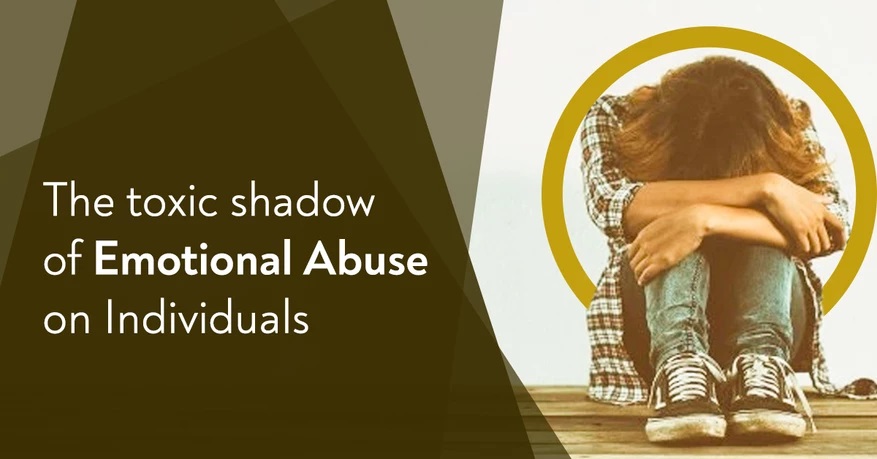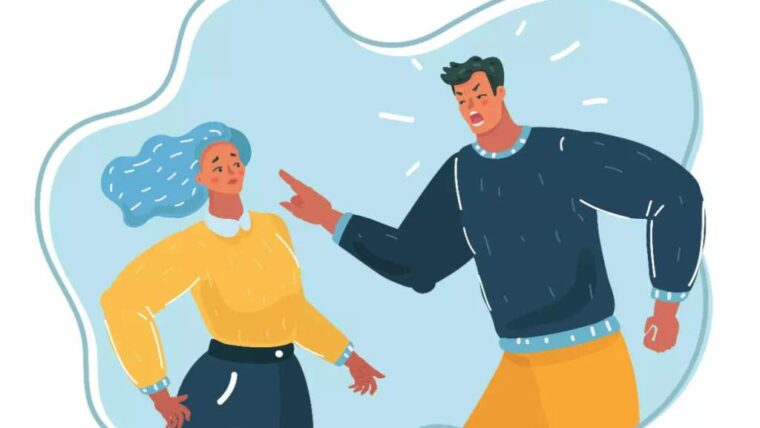Most people know what physical or sexual abuse is. But emotional abuse is still seen as a ‘grey area’ by most people. They might know it has something to do with treating someone else poorly but are not clear on what’s classed as emotional abuse.
The issue with emotional abuse is, there are no physical scars or marks, unlike other types of abuse. The effects of emotional abuse can be tricky to identify but, these behaviours can be incredibly damaging to our mental health and the torment can continue indefinitely and can have far-reaching effects, if not addressed properly.
Emotional abuse may co-occur with other kinds of abuse like sexual, financial or physical abuse like domestic violence. However, it doesn’t need to include other kinds of abuse to count as abuse; it’s serious enough on its own to be a concern. It can feel as destructive as physical abuse, and can severely impact your mental health. Emotionally abusive relationships are often used as a way to maintain power and control over someone.
Emotional abuse can project in the following types –
-
Verbal abuse – swearing, shouting or insulting.
-
Gaslighting – making you doubt your own emotions and sanity by manipulating the truth.
-
Rejection – constant dismissal and ignorance of your thoughts and feelings.
-
Causing fear – making you scared or feeling intimidated and threatened.
-
Bullying – purposely doing or saying things that are meant to hurt you or put you down, calling you names, publicly humiliating you.
-
Isolation – limiting your freedom of movement and social interaction. Stopping or limiting your contact with family and friends; stopping you from doing your normal activities like going to school/ work, social gatherings and activities etc.
The impact of emotional abuse –
Physical violence is often seen as being graver than emotional abuse, but this simply isn’t true. The wounds of emotional abuse are real and long-lasting and seldom precedes physical abuse. As well as harming your self-esteem and confidence, emotional abuse can leave you feeling depressed, anxious or even suicidal.
When faced with the idea of being emotionally abused in your relationship, you go into denial. It is very natural to hope that you’re wrong. You may feel scared, shameful, doubtful and in shock.
You might notice some short-term effects of emotional abuse such as-
-
hopelessness
-
confusion
-
racing heartbeats
-
mood swings
-
nightmares
-
unexplained aches and muscle tension
-
difficulty concentrating
-
changes in your sleep and appetite
The long term effects of emotional abuse are more severe such as –
-
low self-esteem
-
chronic pains
-
anxiety
-
guilt
-
insomnia
-
withdrawal
-
depression
Much like adults, emotional abuse in children can go unseen.
Children facing emotional abuse may show social withdrawal, sleeping issues and regression.
If left unattended, these conditions can continue into adulthood and leave you exposed to more harm.
Most children who are abused don’t grow up to abuse others. But few types of research infer that they may be more likely than adults who weren’t abused in childhood to engage in toxic habits.
Although, individuals who were abused as children or teens are more likely to develop chronic issues like –
-
multiple mental health issues
-
eating disorders
-
depression
-
chronic anxiety issues
-
obesity
-
heart and pulmonary diseases
-
substance abuse disorders
Some signs of emotional abuse in children and teens –
-
lack of confidence
-
difficulty forming and maintaining relationships
-
behaviours that are age-inappropriate
-
difficulty dealing with their emotions
-
Isolation
-
Sudden outbursts and lack of social skills
Emotional abuse is generally about control. Sometimes this is specific- if you are told when and where you can go out, or whether you can see certain people. Other times, however, it might be more implicit- neglect or withholding affection may seem less abusive than more outwardly hostile behaviours but is just as hurtful.
When to seek help?
If your behaviour starts to change and you are no longer able to find satisfaction in your work or social life, it is time to consider seeking help.
If people you trust express concern about you, one of the most helpful things you can do is talk to them about what’s going on. Talking to someone outside of the situation can help give you a little perspective. They can help you to evaluate the situation.
Emotional abuse can have a damaging impact on you, so it is important to seek help and assistance to prevent it from becoming established.
You may not feel comfortable speaking to loved ones about what is going on, or maybe you have, yet they aren’t sure of how to help you.
Counselling offers you a safe space to talk without fear and judgement. They can hear you, and help you come to terms with what has happened, and understand your choices for moving ahead.
Get in touch with us for further information.




